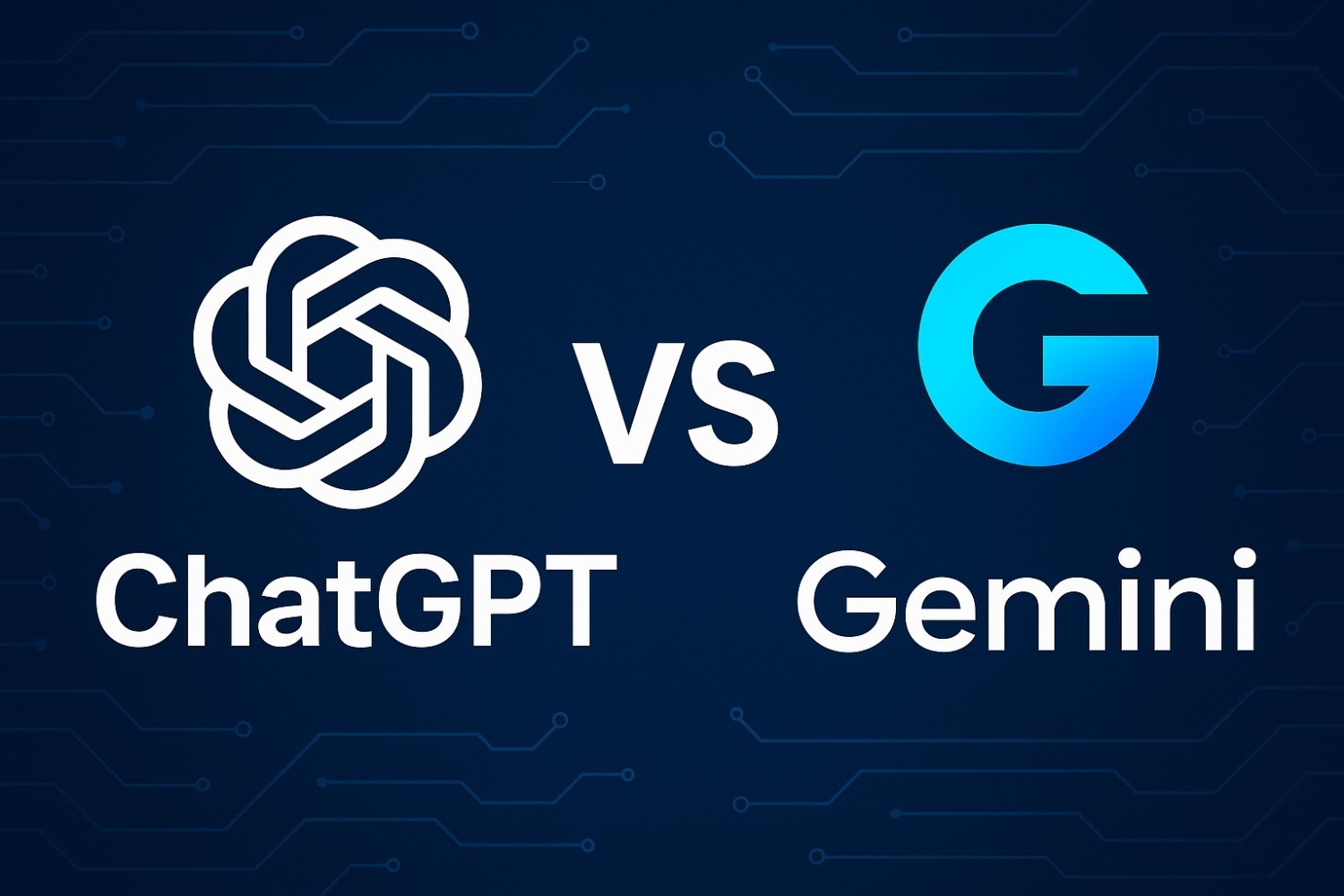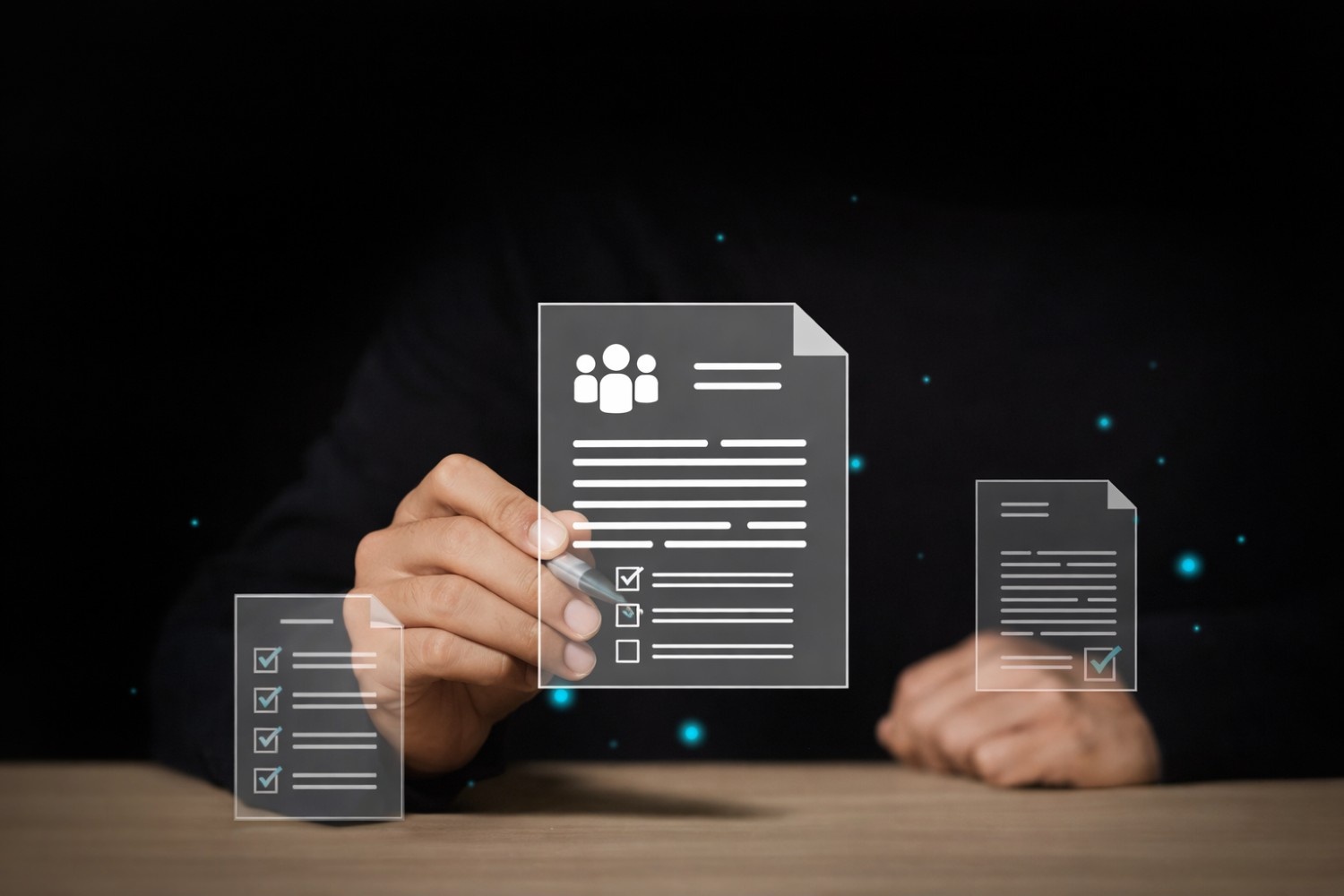Gemini vs ChatGPT for HR: Which is the Best AI Tool for Recruitment?
Choosing between Gemini and ChatGPT for HR? This blog post compares their capabilities, integrations, and real-world impact to help you choose the best AI tools for HR for employee engagement and enhanced productivity.

Ankita Gupta
Marketing Specialist

In the last three years, AI adoption in HR has shifted from curiosity to necessity.
AIHR shows that HR workloads have increased by 10%, while budgets have shrunk by 1.5% and headcount by 2%. The result? A widening productivity gap that AI is expected to close.
Out of all the AI tools available for recruitment, two prominent players driving this shift are Gemini (Google's multimodal AI) and ChatGPT (OpenAI's conversational AI). Both are powerful, both are fast-evolving, but they are not the same. The question HR leaders face in 2025 is simple yet crucial: which AI tool is the best for HR?
This article compares Google's Gemini and OpenAI's ChatGPT, helping you make an informed, workflow-aligned decision.
How Does Gemini and ChatGPT Work for HR?
Gemini: Google's AI Assistant for the Workspace Generation
Created by Google DeepMind, Gemini is made to function flawlessly with the Google Workspace ecosystem, which includes Gmail, Docs, Sheets, and Meet. Its exceptional ability to handle complex document summarization and long-context reasoning makes it an ideal choice for your HR teams handling data-intensive procedures.
Key features:
- Natively integrated into Google Workspace
- Strong at summarizing policies, analytics, or employee feedback
- Understands long, detailed inputs (Gemini 1.5 Pro's extended token window)
- Enterprise-grade privacy under Google Cloud infrastructure
ChatGPT: The Conversational Powerhouse from OpenAI
ChatGPT, powered by OpenAI's GPT-4o, combines multimodal intelligence, text, image, and voice, with a conversational interface. ChatGPT for HR is preferred for communication-driven tasks like drafting, training, or employee engagement because it is deeply integrated with Microsoft 365 (through Copilot).
Key features:
- Conversational and creative text generation
- Multimodal input (text, image, voice, code)
- Integrates with Microsoft Outlook, Word, Excel, and Teams
- Available via API, free, Plus, and Enterprise tiers
Both models are LLMs, but their strengths differ based on how HR teams use AI.
Shared Capabilities: How Both Gemini and ChatGPT Support HR Tasks?
Both tools empower HR teams to simplify repetitive, time-consuming processes. Here's what both Gemini and ChatGPT can do effectively within an AI-based recruitment platform:
- Draft job descriptions, interview questions, or offer letters
- Summarize performance reviews, policies, or meeting transcripts
- Generate internal communication (emails, memos, newsletters)
- Analyze employee survey results or sentiment data
- Create training or onboarding materials
- Automate administrative workflows (reminders, document updates)
Use clear prompts (e.g., "Draft a 200-word candidate outreach email for a sales role in India emphasizing growth and culture to improve candidate experience") to get the most out of these AI tools for HR. Gemini and ChatGPT both react best to a specific context.
Both AI tools are beneficial to HR, but which one is the best for you will rely on your daily workflows and the AI-based recruitment platform you use.
Gemini Vs ChatGPT for HR - What are the Key Differences?
1. Accuracy and Context Understanding
For text reasoning, creating HR policies, creating job descriptions, or elucidating compliance clauses with almost human-like nuance, ChatGPT, especially GPT-4 Turbo, is outstanding.
Gemini's advantage lies in context integration. It can do resume analysis, dashboard management, and even create video interview transcripts in one go. This makes it more holistic for HR analytics and multi-data workflows.
Verdict:
- ChatGPT is better in deep reasoning and policy documentation
- Gemini works better in contextual understanding and multimodal tasks
2. Data Privacy and Compliance
For HR, privacy is not optional. Both companies have enterprise-grade compliance setups:
- ChatGPT Enterprise: SOC 2 compliant, no training on client data
- Gemini for Workspace: Data never leaves Google Cloud's secure environment
However, Google's ecosystem advantage (Docs, Drive, Gmail) makes Gemini slightly easier for HR teams already on Google Workspace.
Verdict:
Both are secure, but Gemini integrates more natively into HR's everyday workflow tools.
3. HR Integrations and Use Cases
| HR Function | Strengths of ChatGPT for HR | Strengths of Gemini for HR |
|---|---|---|
| Recruitment & Talent Acquisition | Drafting JDs, candidate screening prompts, outreach emails | Doing resume analysis, summarizing interviews, integrating ATS data |
| Learning & Development | Creating personalized training content, assessments | Synthesizing text, video, and slides into learning paths |
| Employee Engagement | Writing surveys, analyzing sentiment | Combining chat + visual engagement metrics |
| HR Analytics | Interpreting dashboards and reports | Multimodal workforce analytics, attrition prediction |
| Internal Communication | Drafting HR newsletters, policies, memos | Real-time summarization from meeting transcripts |
ChatGPT can generate structured interview questions, which are compatible with role competencies. Gemini can find keywords in recorded interview clips and match them against job requirements.
Verdict:
Although ChatGPT works well in language generation and automation based on reasoning, Gemini has a multimodal advantage, which makes it useful to HR teams that are highly dependent on analytics.
Gemini Vs ChatGPT: Which AI Tool is the Best for HR?
Choosing between Gemini and ChatGPT for HR involves more than just deciding which AI tool seems more capable; it also involves fit. The best AI model for your team should be in line with your current ecosystem, data handling guidelines, workflow styles, and return on investment objectives.
Below is a step-by-step framework to help you make an informed, business-aligned decision.
Step 1: Start with Your Ecosystem
Adoption of AI is facilitated by its integration with your existing technology stack. Select the model that best suits the digital environment you use every day. By decreasing app switching, integration convenience can save 10 to 15 hours per recruiter each month.
Gemini integrates natively if Google Workspace (Gmail, Docs, Sheets, Drive, Meet) is the main platform used by your company. Within the same ecosystem, Gemini can automatically compile resumes from Google Drive, do resume analysis, examine interview transcripts from Meet recordings, or produce brief reports from Google Sheets.
ChatGPT for HR works better if you use Microsoft 365 (Outlook, Teams, Word, and Excel). ChatGPT can generate onboarding plans in Word, write email responses, and summarize Teams meetings through Copilot integrations.
Step 2: Match AI to Workflow Type
The cognitive abilities required for various HR workflows vary. You cannot expect the same AI to write empathetic job emails and crunch attrition data equally well. Let the nature of the task determine your model of choice.
| Workflow Type | Ideal AI | Why |
|---|---|---|
| Data-Driven & Analytical (e.g., attrition trends, skill gap analysis) | Gemini | Processes multiple data formats like spreadsheets, dashboards, and video insights simultaneously |
| Language-Heavy & Creative (e.g., job descriptions, policy drafts, communication) | ChatGPT | Excels in human-like tone, narrative writing, and conversational flow |
Step 3: Evaluate Compliance and Data Residency
For HR leaders in India, UAE, or other regulated markets, data residency and compliance are critical.
- Gemini operates under Google Cloud's compliance framework with options to store and process data regionally based on the company's cloud configuration.
- ChatGPT Enterprise runs on Microsoft Azure infrastructure, offering SOC 2 compliance, ISO/IEC certifications, and no data retention for API usage.
Ask your IT or compliance team:
- Where will our employee data be stored?
- Can we audit AI interactions?
- Does the AI vendor meet our region's privacy laws (GDPR, DPDP, DIFC, etc.)?
Adoption depends not only on price but also on ease of use and training availability. Choose the AI that your HR team can embrace quickly without a steep learning curve.
Step 4: Run Pilot Projects and Measure ROI
Start small, measure impact, then scale. Instead of rolling AI across all HR processes, begin with high-impact, low-risk use cases such as:
- Automating job description creation
- Generating email templates for candidate communication
- Summarizing employee feedback reports
How to Evaluate the Success of AI Tools for HR?
Check these four metrics to evaluate the output of AI tools for HR:
- Efficiency: Time saved per task or per recruiter
- Effectiveness: Output quality or error reduction
- Adoption: Number of HR users engaging with the tool weekly
- Scalability: Ease of extending AI use to new HR functions
What are the Challenges of Using AI Tools for HR?
AI adoption in HR is promising but sensitive. Here are the top risks to manage:
- Data privacy: Protect candidate and employee information. Use enterprise accounts only.
- Bias propagation: Review generated text for gendered or biased language.
- Over-automation: Do not replace human empathy with machine output.
- Compliance: Follow GDPR, compliance rules, and internal ethics guidelines.
- Accuracy: Verify AI outputs for factual and legal correctness before use.
AI can draft, summarize, or suggest, but final decisions and communications should always have a human review layer.
How to Use AI Tools for HR Together?
Many HR leaders don't pick one, they combine Gemini and ChatGPT together strategically.
| Function | Recommended Tool |
|---|---|
| Policy & analytics | Gemini |
| Candidate communication | ChatGPT |
| Document summarization | Gemini |
| Employee chatbot & engagement | ChatGPT |
| Onboarding content | Either |
| HR dashboards & reporting | Gemini |
This hybrid approach minimizes risk and leverages each AI's strength without forcing a platform shift.
Conclusion
The real question for HR is not "Which AI tools are better for HR - Gemini or ChatGPT?" but rather "How can these tools work together to improve our people strategy?" Both models are powerful, but their strengths serve different dimensions of HR transformation. In the upcoming years, the most progressive HR teams would not limit themselves to one AI. They will utilize both to the best of their abilities, using Gemini for multimodal analytics and ChatGPT for strategic communication and creative thinking. These tools are not a replacement for people, but a complementary part of human judgment, empathy, and strategy.
Tags

Ankita Gupta
Marketing Specialist
Ankita Gupta is a key member of the Talentpool team, bringing extensive experience in talent acquisition and recruitment technology to help companies build better hiring processes.




